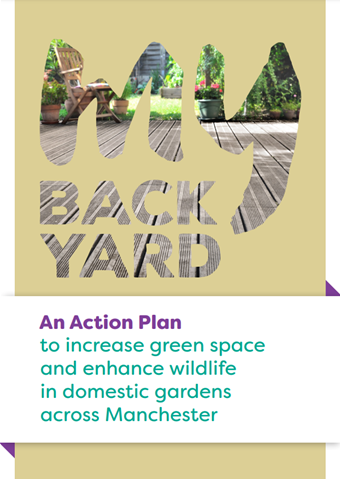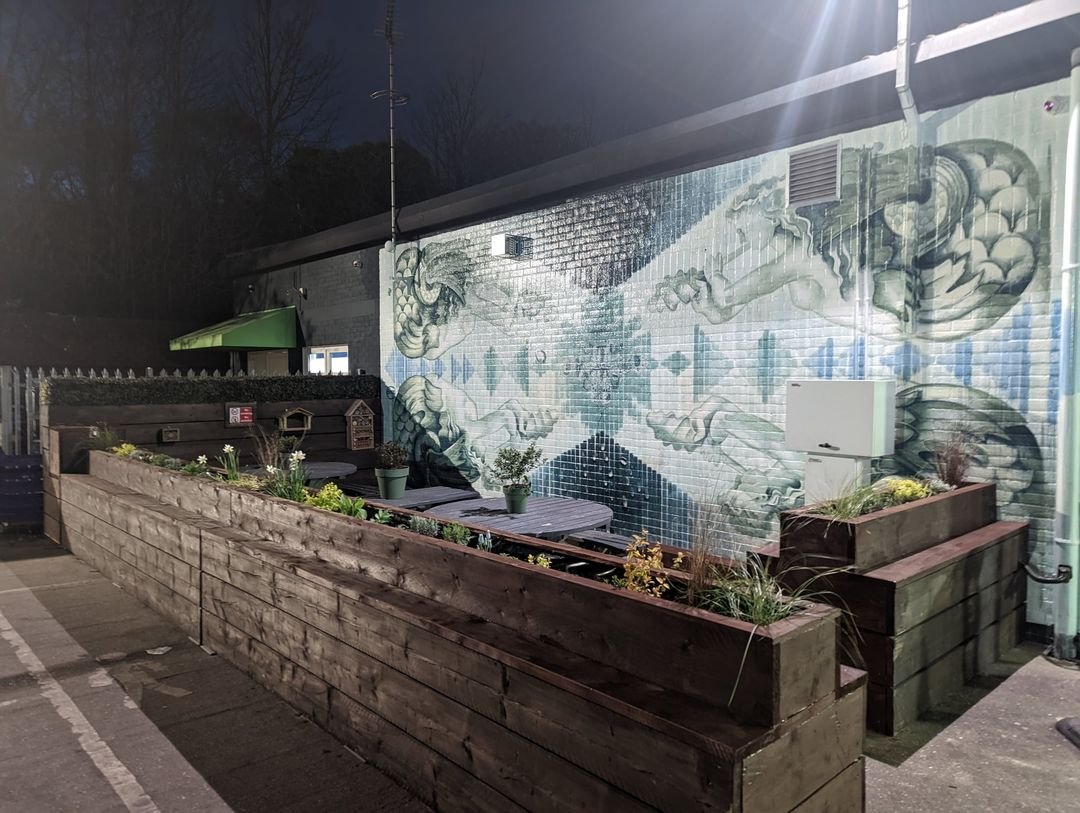Gardening in a changing climate
Climate change will mean we will experience more frequent and more severe extreme weather events.
Floods, droughts, storms and strong winds all have an impact on our gardens. In particular, plants and trees that currently thrive might struggle to survive wetter winters and hotter, drier summers.
At the same time, our gardens can be used to help us adapt to climate change. For instance, planting schemes can be used to create shade and windbreaks. Growing drought tolerant plants will help to conserve water during times of drought.
By growing more plants overall we can reduce storm water run-off and create habitats that will boost local biodiversity. In particular, gardens can help alleviate surface water flooding soaking up rainwater unlike tarmac, paving and concrete which are less porous and increase runoff. Plants and trees with denser canopies can provide shade in gardens and increase transpiration rates.
The value of gardens
Individually a domestic garden may appear insignificant. But collectively domestic gardens make up a significant proportion of the green space within a city
Recent research reported that, contrary to assumptions, gardens are not completely green space. This affects the total estimate of green and blue space cover across Manchester.
Less green space in domestic gardens means that the potential benefits they provide to people are severely reduced.
For further information on this Manchester based research, click here.
Some principles for gardening in a changing climate:
1. Harvest rainwater from your house, shed or other structures using waterbutts.
2. Grow drought tolerant plants that will require less watering.
3. Grow native plants to cope with changing weather patterns.
4. Plant a hedge as a windbreak.
5. Grow plants to reduce pollution.
6. Grow flowers all year round to help pollinators.
7. Reduce hard surfaces to prevent flooding.
8. Grow plants to create shade.
For further advice, including recommendations for plants to grow, visit the Gardeners World website.
United Utilities Garden of Resilience (at RHS Bridgewater)
In 2021, United Utilities sponsored a resilient garden at RHS Tatton Show, demonstrating how gardens can be adapted for a changing climate.
The garden showcases how individuals can manage weather extremes in their own garden, including drought resistant plants, flood resistant plants and plants that reduce surface water run off or slow it down.
The garden provides practical and creative ideas, featuring a shelter with a living roof, a water chain, a rainwater planter, a water butt disguised as a bench, permeable sandstone paving and a sunken rain garden. The garden also allows visitors to take time out to refresh, and to connect with nature, strengthening their own personal resilience.
“The garden really comes alive when it rains. We’ve made the water into a feature which you can watch as it moves through the garden, re-using it to create a resilient, soft landscape to improve biodiversity, air quality and well-being. Ultimately the garden celebrates water, respecting it and conserving it for times of need.”
- The garden’s designer, Leon Davis
Annotated design drawing of the Garden of Resilience (Leon Davis & United Utilities)
Ultimately the garden celebrates water, respecting it and conserving it for times of need. The garden has subsequently been moved to a permanent home at RHS Bridgewater Garden, Salford. United Utilities have previously sponsored a Slow the Flow show garden at Tatton.
RHS Garden of Resilience, 2021
RHS Tatton ‘Slow the flow’ garden
Rain gardens
Rain gardens - shallow landscaped depressions that reduce rainfall run off - can also be installed on properties (sometimes called ‘backyard SuDS’).
They can reduce the amount of water entering the drainage network by capturing and storing rainwater, allowing it to slowly infiltrate into the ground, or releasing it into the drainage network in a slow, managed way. Rain garden performance can be enhanced by engineering the sub-base to include a layer of gravel that filters pollutants and increases the capacity for rain-water (sometimes referred to as bioretention systems).
For further information on rain gardens, see Designing Rain Gardens: A Practical Guide (PDF) or visit the RHS website.
Workshop on building a rain garden planter (Susdrainable).
Susdrainable
The Hull based social enterprise, Susdrainable, specialise in the design and installation of small-scale retrofit Sustainable Drainage Systems (SuDS), like Rain Gardens, Rainwater Storage Planters and Rain Garden Planters. As well as reducing surface water flood risk, their installations help to reduce water pollution, increase biodiversity, and improve urban green spaces.
You can find out more by visiting Susdrainable’s website.
Susdrainable's first rain water installation at a fuel station forecourt, Chanterlands Avenue in Hull.
Further information on gardening in a changing world:
The Royal Horticultural Society has published guidance on how to make gardens more resilient: https://www.rhs.org.uk/science/gardening-in-a-changing-world/climate-change
Find out more about the RHS Planet-Friendly Gardening Campaign
Find out more on the ‘RHS Tatton Show garden celebrates resilience in today's climate’ web page
City of Trees planting guides: https://www.cityoftrees.org.uk/resource/planting-guides
Bruntwood - I Want Plants website: https://www.iwantplants.co.uk/news/booths-loves-bees-designing-a-botanical-home-for-bruntwoods-wildlife/






